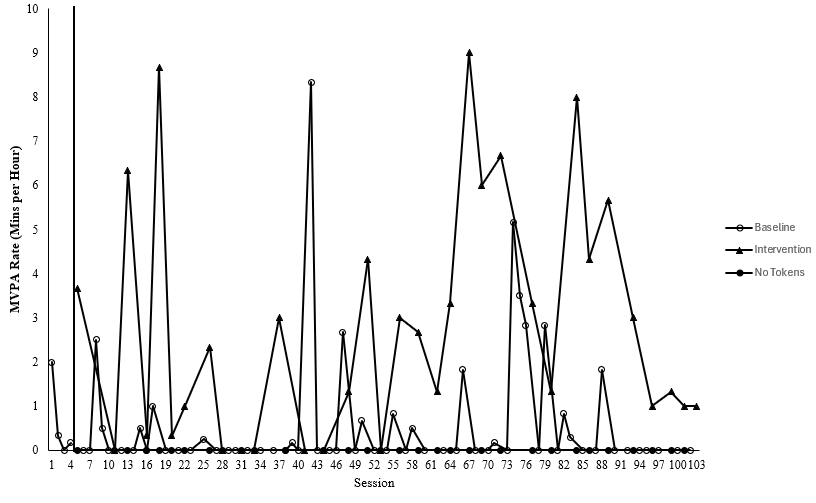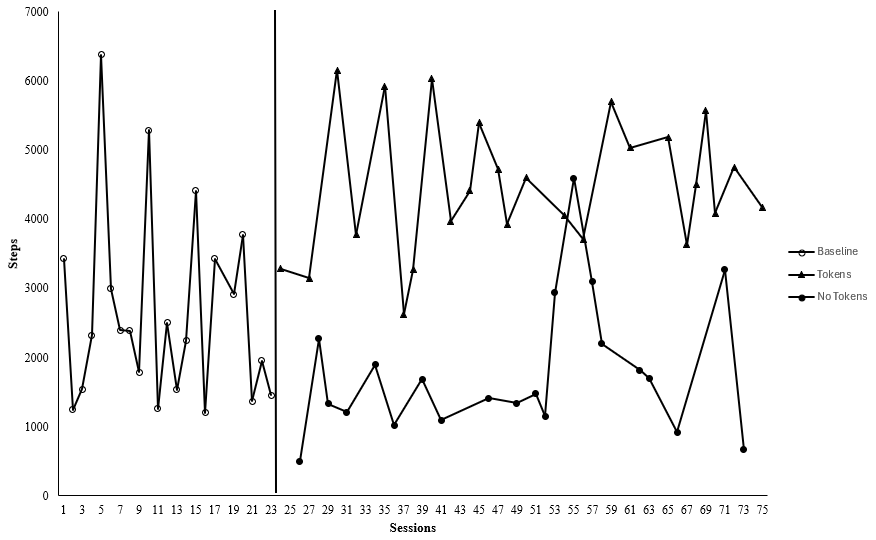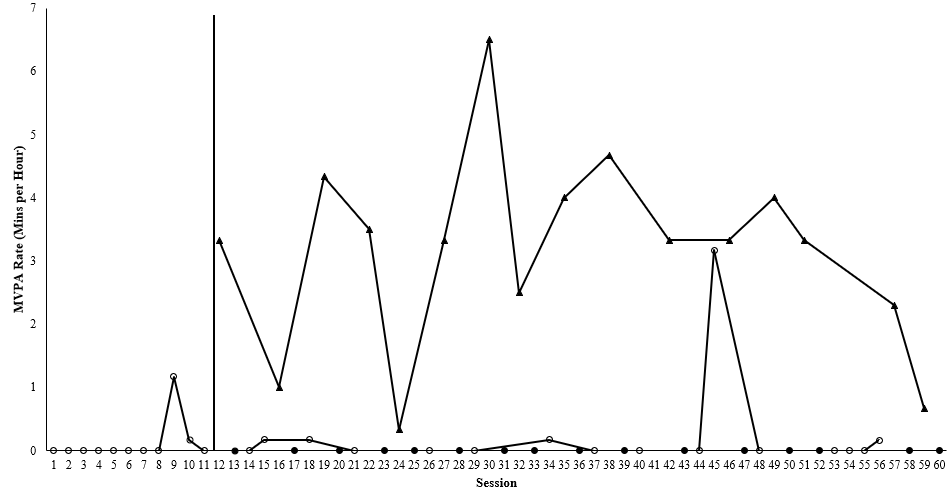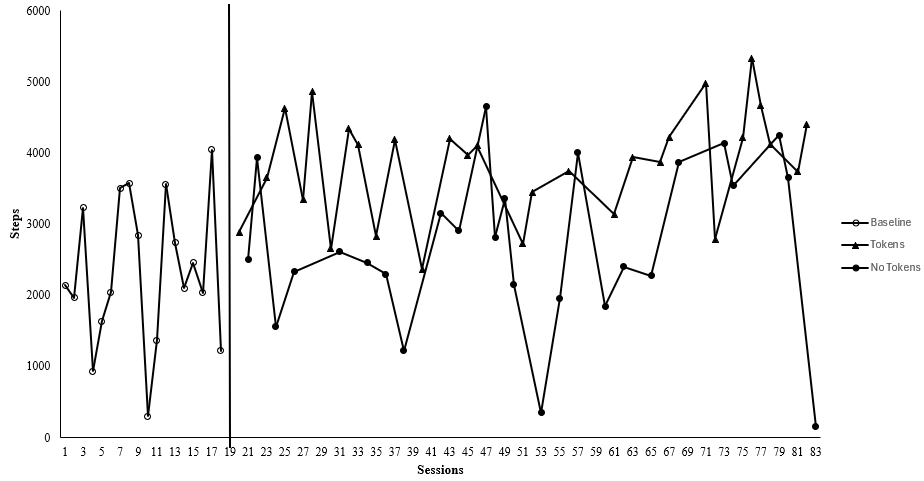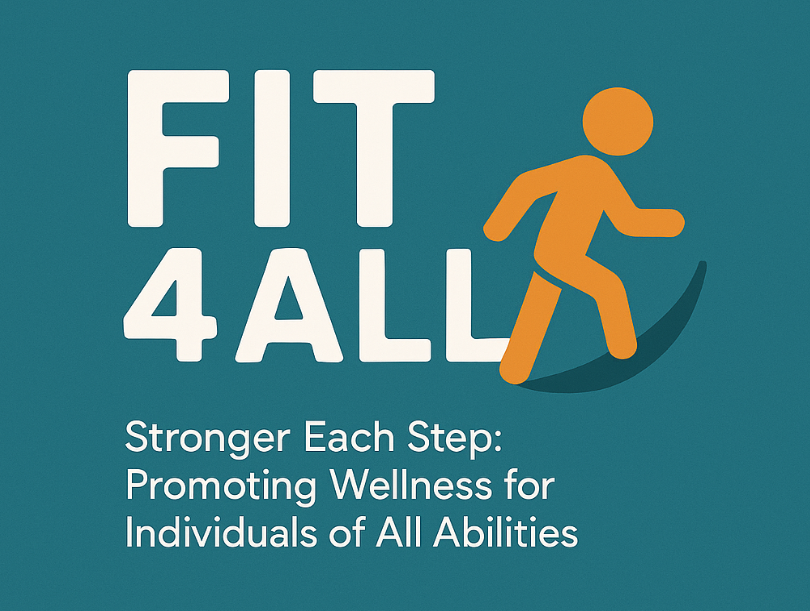
The Effects of Token Reinforcement on Moderate-to-Vigorous Physical Activity and Step Count in Adults with Developmental Disabilities
Abstract
Obesity remains a critical public health concern, disproportionately affecting individuals with developmental disabilities (DD) who face both biological and behavioral vulnerabilities. Applied Behavior Analysis (ABA) provides a systematic, evidence-based framework for promoting health behaviors in this population. The present study employed an alternating treatments design to evaluate the effects of a token reinforcement system on physical activity in two adults with DD attending an adult day program. Exercise participation was measured using Fitbit devices, with step count and minutes of moderate-to-vigorous physical activity (MVPA) serving as primary outcomes. Relative to baseline, the intervention condition produced consistent increases in both MVPA and overall activity volume, with partial maintenance observed during recovery sessions. Findings support the utility of reinforcement-based interventions in increasing physical activity among adults with DD and contribute to the emerging literature on integrating behavior-analytic strategies within health promotion initiatives.
